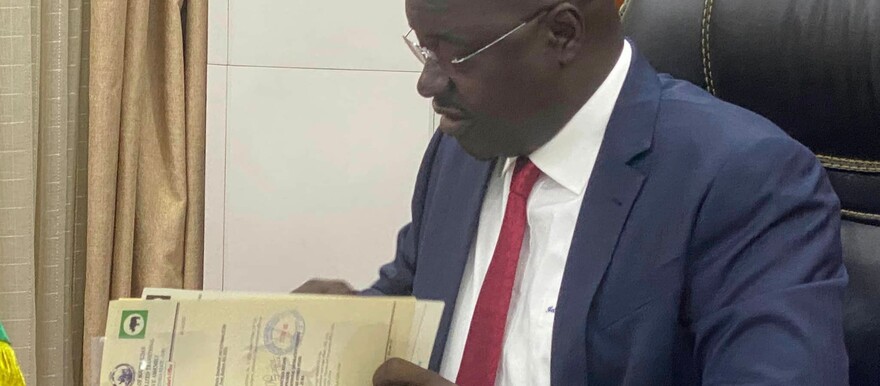The governor of Central Equatoria State Emmanuel Adil Anthony signed and passed the 2022/2023 fiscal year budget in the presence of cabinet ministers, advisors, and lawmakers on Tuesday.
The resource budget envelope to the tune of over 16 Billion SSP was scrutinized and passed by the Central Equatoria state legislators last week.
On his own official Facebook page Governor Emmanuel Adil said; “Like any other responsible and accountable government, I today Tuesday, 01 November, am extremely delighted to have presided over the occasion for the assent of the budget, together with other vital financial bills following its recent passage by the state assembly after thorough deliberations and scrutiny.”
Governor Adi said the budget bills he signed into law are envisioned to put the state on a stronger financial base for both the day-to-day and the long-term plans as well as on emerging issues.
“During the signing ceremony, I emphasized the need for the various institutions tasked with the responsibility to mobilize resources to uphold financial discipline and stick to budget lines reflected in the various budget detailing and re-double efforts on resource mobilization to enable the government professionally finances its general activities as required by international practices,” he added.
Addressing the press in the presence of the state governor, Central Equatoria State finance Minister Wani Tom Sebit said the resource envelope with be financed through grants from the national government and state revenue-generating institutions.
He said the budget will also be used towards meeting the state strategic development plan of security stability, peace, and service delivery units in areas of agriculture, education, health, clean water, and road network.
“The government plans to spend this budget as follows; salaries alone amount to 5.1 Billon and will constitute around 82% of the total resource envelope, the use of goods and services which constitutes 6.7% of the resource envelope, and capital constitutes 3.7 Billion SSP which is 23% and conditional operational transfers to counties and service delivery units which constitutes 380.3 million South Sudanese pounds,” he explained.
Sebit said his ministry and the parliament are keen to ensure that the budget is used transparently for the benefit of the people and the development of the state.
“The implementation of the fiscal year budget 2022/2023 shall be in accordance with budget chapters and codes and there shall be required quarterly accountability reports as the ministry will plan to finance the institutions quarterly and we expect quarterly reports to be tabled to the August house and this shall enable the finance ministry to present financial reports as required by the public finance management and accountability act,” he added.
Reacting to the budget passage, Justoson Victor a civil society activist welcomed the passing of the long overdue fiscal year budget. He urges the finance ministry and other service delivery ministries to ensure accountable and transparent use of the public budget.
“We want to see that the budget is used accordingly because we want to see that our bridges and roads are fixed, we want schools rehabilitated and become functional, we would like to see the health centers improved and we would like to see that the salaries for our civil servants like the teachers and health workers are paid timely and we would like to see that there is transparency and accountability on the use of this budget,” he urged.
Victor urges the parliamentarians in the state to exercise their oversight role in monitoring the correct use of the budget for the people at the grassroots.




